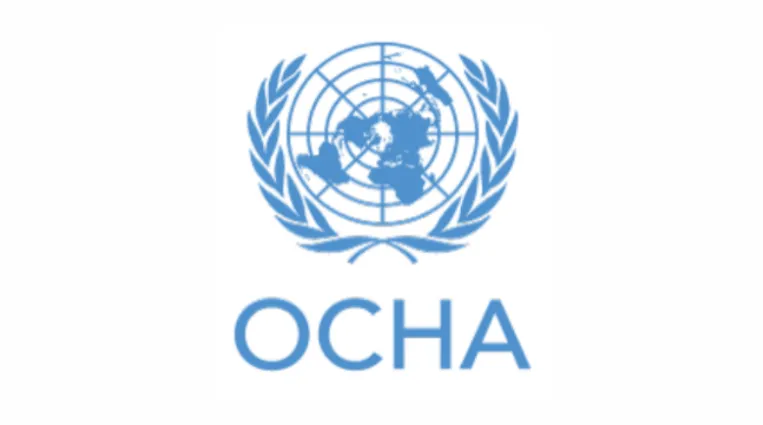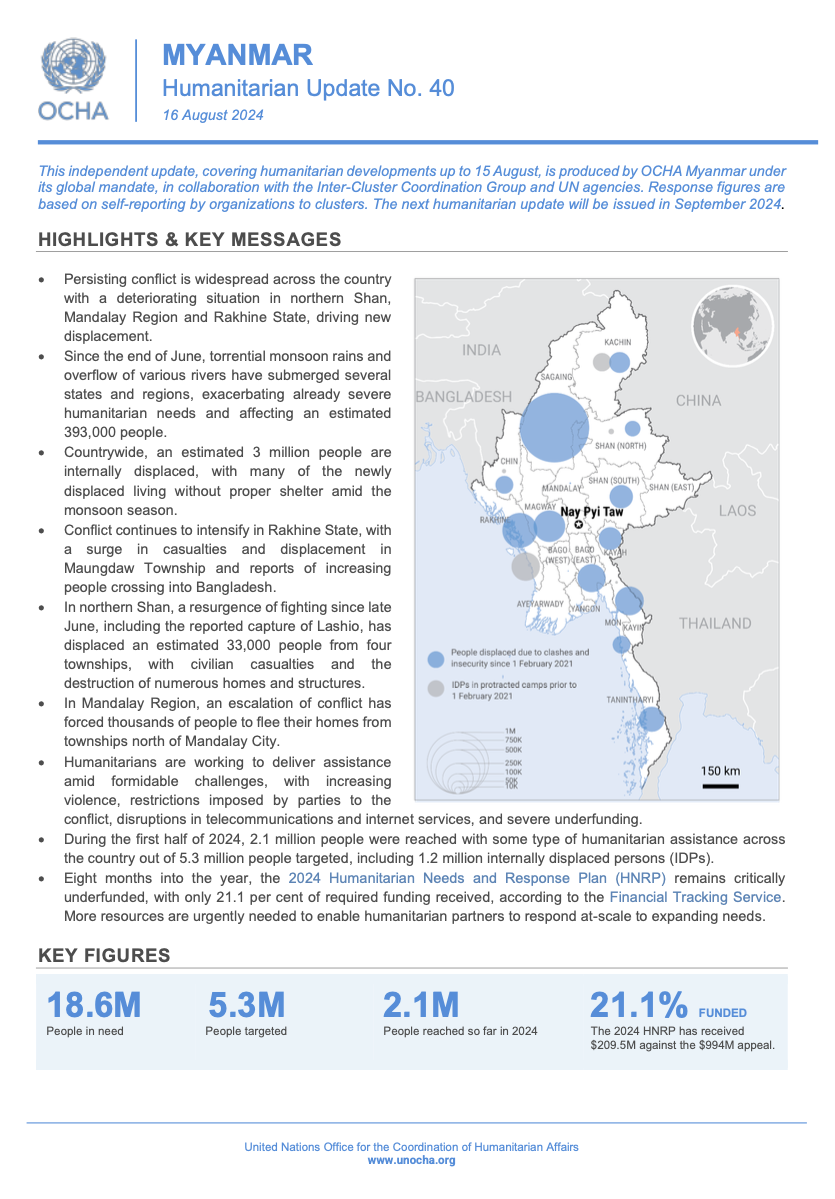Myanmar Humanitarian Update No. 40
16 August 2024


HIGHLIGHTS & KEY MESSAGES
• Persisting conflict is widespread across the country with a deteriorating situation in northern Shan, Mandalay Region and Rakhine State, driving new displacement.
• Since the end of June, torrential monsoon rains and overflow of various rivers have submerged several states and regions, exacerbating already severe humanitarian needs and affecting an estimated 393,000 people.
• Countrywide, an estimated 3 million people are internally displaced, with many of the newly displaced living without proper shelter amid the monsoon season.
• Conflict continues to intensify in Rakhine State, with a surge in casualties and displacement in Maungdaw Township and reports of increasing people crossing into Bangladesh.
• In northern Shan, a resurgence of fighting since late June, including the reported capture of Lashio, has displaced an estimated 33,000 people from four townships, with civilian casualties and the destruction of numerous homes and structures.
• In Mandalay Region, an escalation of conflict has forced thousands of people to flee their homes from townships north of Mandalay City.
• Humanitarians are working to deliver assistance amid formidable challenges, with increasing violence, restrictions imposed by parties to the conflict, disruptions in telecommunications and internet services, and severe underfunding.
• During the first half of 2024, 2.1 million people were reached with some type of humanitarian assistance across the country out of 5.3 million people targeted, including 1.2 million internally displaced persons (IDPs).
• Eight months into the year, the 2024 Humanitarian Needs and Response Plan (HNRP) remains critically underfunded, with only 21.1 per cent of required funding received, according to the Financial Tracking Service. More resources are urgently needed to enable humanitarian partners to respond at-scale to expanding needs.
Announcements
21 May 2025
Open letter: Malaysia must lead ASEAN with principle, not hypocrisy, to address the Myanmar crisis

Progressive Voice is a participatory rights-based policy research and advocacy organization rooted in civil society, that maintains strong networks and relationships with grassroots organizations and community-based organizations throughout Myanmar. It acts as a bridge to the international community and international policymakers by amplifying voices from the ground, and advocating for a rights-based policy narrative.